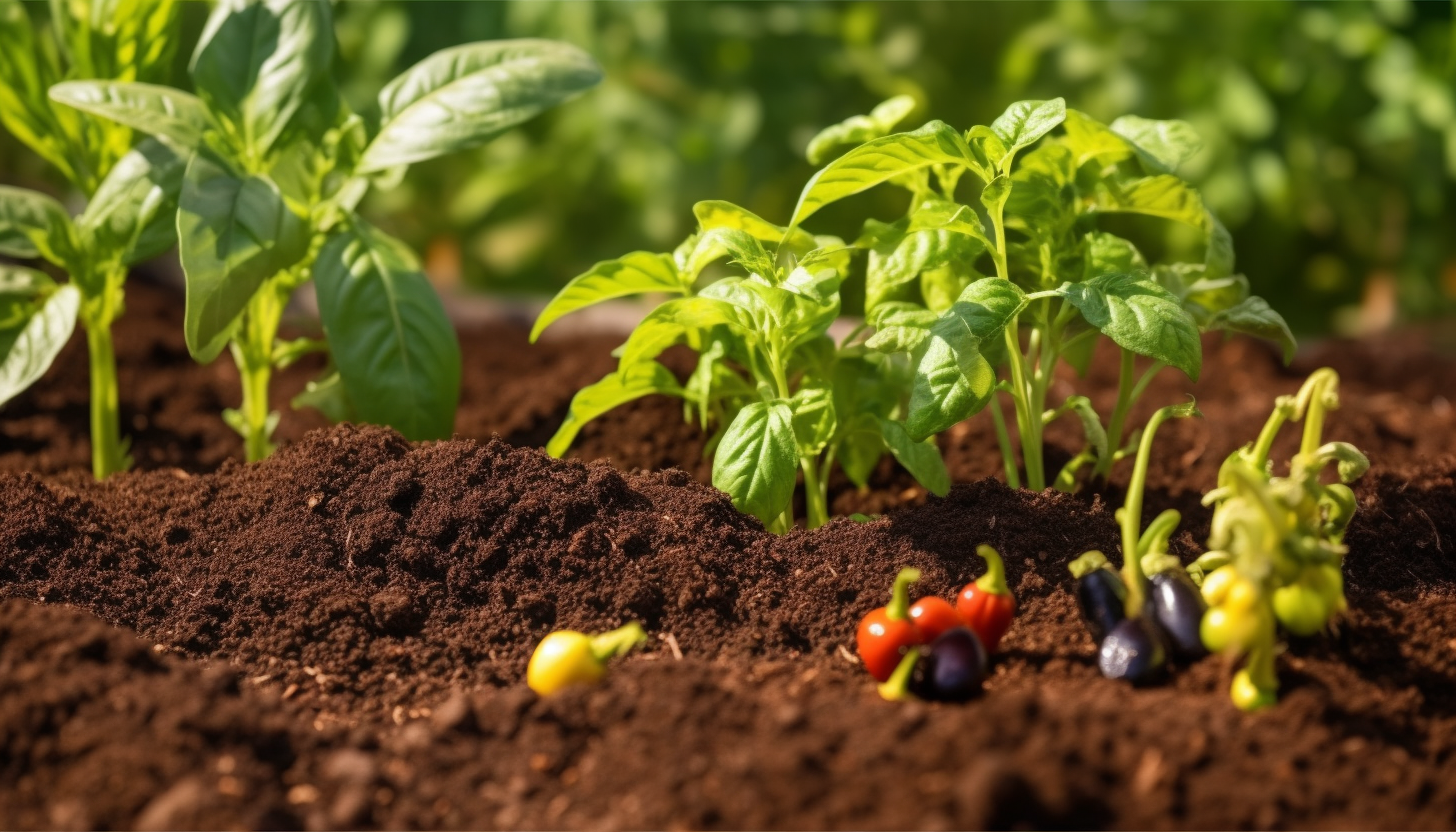P
May 28, 2023
Choosing the Right Soil Amendments for a Healthy Vegetable Garden
#Healthy Vegetable Garden
#Soil Amendments
#Compost
#Leaf Mold
#Humus
#Organic Matter
#Soil Structure
#Nutrient Retention
#Water Retention
#Composting
#Soil Health
#Microorganisms

healthy-vegetable-garden-thumbnail
Importance of Soil Amendments for a Healthy Vegetable Garden
When it comes to a healthy vegetable garden, the health of your soil can make or break your efforts. The quality of your soil directly impacts the health and productivity of your plants. Soil amendments play a crucial role in improving the overall health of your soil, enhancing nutrient retention, water retention, and soil structure. These amendments can be organic matter like compost, leaf mold, or humus, or inorganic matter like sand, gravel, or vermiculite. They improve the soil's physical and chemical properties, making it more fertile and resilient. So, what are these soil amendments and how do they improve your soil?
Compost is an essential organic matter that's widely used in gardening. It's a mixture of decomposed organic matter and soil, which improves the soil's structure, aeration, water-holding capacity, and overall fertility. It promotes microbial activity in the soil, which aids in nutrient cycling and soil health. Leaf mold is another type of organic matter that's often used in gardening. It's created by composting fallen leaves, which add valuable nutrients and minerals to the soil. It also improves soil structure, helps with soil drainage, and enhances microbial activity.
Types of Soil Amendments and Their Uses
Other types of soil amendments include humus, which is the end product of organic matter degradation. It's a stable form of organic matter that improves soil structure and promotes microbial activity. Inorganic amendments like vermiculite, sand, and gravel improve soil structure and water-holding capacity. They also improve drainage and aeration. When choosing the right soil amendments for your garden, consider the type of soil you have, the plants you're growing, and the desired outcome. Choosing a mix of organic and inorganic amendments can improve the overall health of your soil and lead to a successful and healthy vegetable garden.
Benefits of Soil Amendments for a Healthy Vegetable Garden
Soil amendments not only improve the health of your soil but also the health of your plants. They increase the availability of nutrients in the soil, improve the structure of the soil, which aids in water and air retention, and promote microbial activity, which improves the breakdown of nutrients and enhances soil health. They also improve the physical structure of your soil, which can help prevent erosion and promote plant growth. When choosing the right soil amendments for your vegetable garden, remember that they're not a magic bullet or a quick fix. Rather, they're a part of a holistic approach to gardening that involves choosing the right plants, maintaining the right soil pH, and providing the right amount of nutrients.
Conclusion
A healthy vegetable garden starts with a healthy soil. Soil amendments are a crucial part of this equation. They improve the health of your soil, providing better structure, better nutrient retention, and better microbial activity. They're an integral part of creating a healthy soil that's resilient, promotes plant growth, and supports a thriving ecosystem. When choosing the right soil amendments for your vegetable garden, consider the type of soil you have, the plants you're growing, and the desired outcome. A mix of organic and inorganic amendments can help you create a healthy soil that's suitable for your plants.


